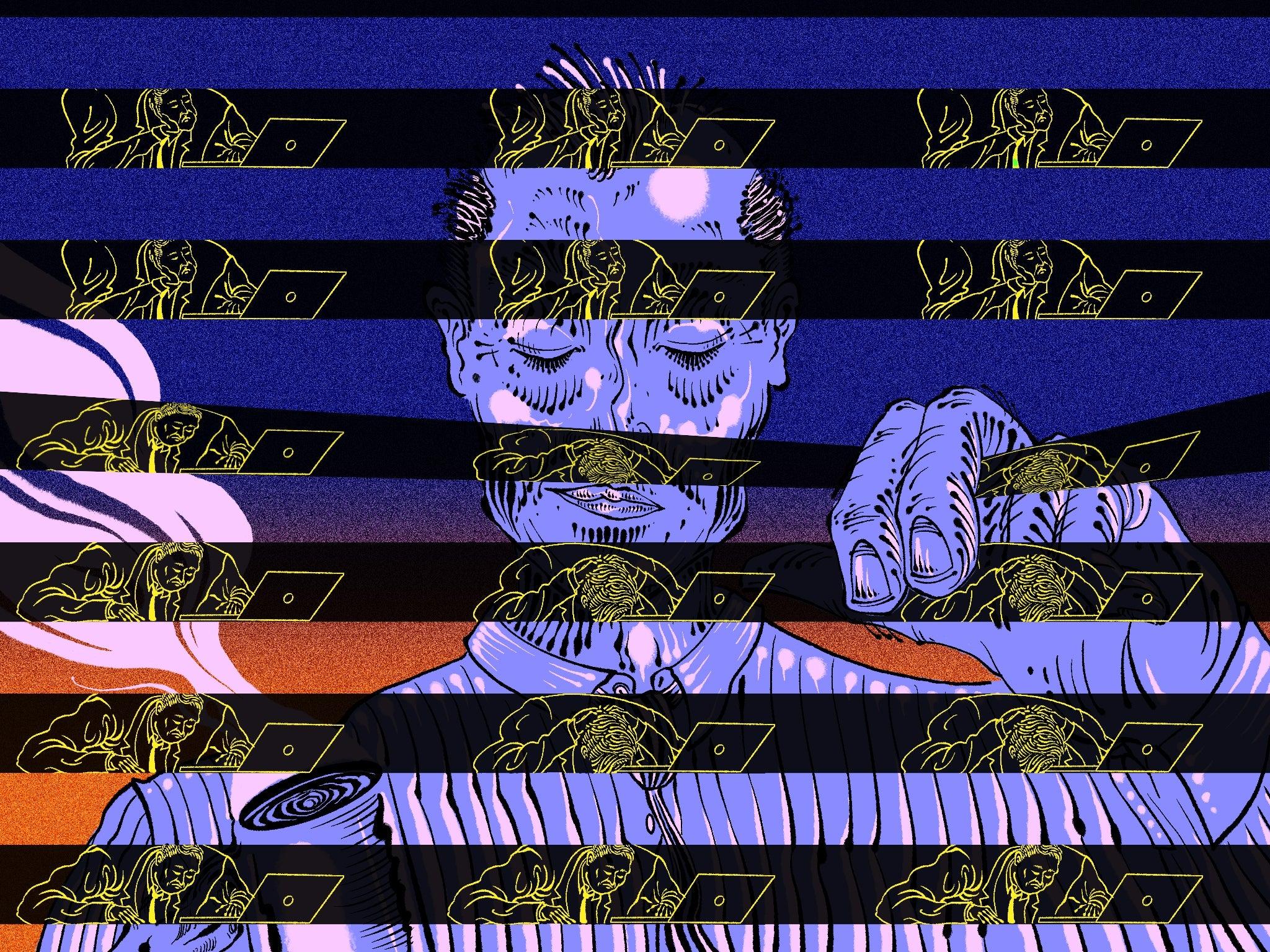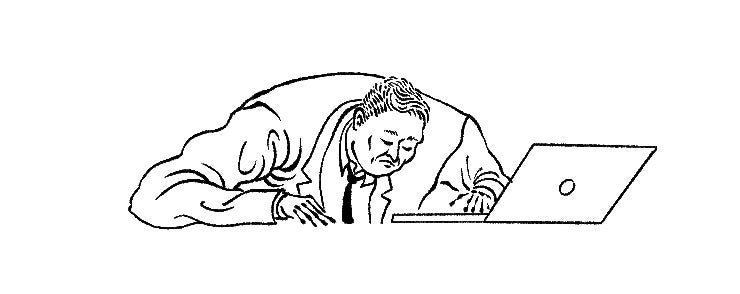How can we fix mental illness if the industry itself is sick?
The coalition government of Cameron and Clegg called for ‘parity of esteem’ within the mental health industry. That was 10 years ago. Isn’t it about time the psychiatric profession dropped the hypocrisy, asks Will Self, along with the warped conception of ‘good’ mentally ill people and ‘bad’


In September 2018, I gave a talk on Radio 4 enquiring into what had happened regarding the “parity of esteem’’ that David Cameron and Nick Clegg’s coalition government of 2010 wished sufferers from mental illness to be accorded with the physically ill. The talk focussed on a friend of mine who’d been detained under the Mental Health Act following a minor breakdown.
His treatment was very far from what anyone with a physical malady might have expected: confined against his will in frightening circumstances, after a consultation lasting five minutes he was subjected to a misdiagnosis, and a consequent psychopharmacology regime that left him unable to effectively contest it. Were it not for my own intervention, followed by that of a lawyer with the relevant expertise, he would have been detained for another 28 days, during which he would undoubtedly have suffered further drug-induced institutionalisation. As it was, my friend walked free from mental hospital, and has not returned; which is not say that he hasn’t remained highly vulnerable.
Five days after my talk was broadcast, I received a letter from Professor Wendy Burn, president of the Royal College of Psychiatrists (RCP). In it she presented two rather contradictory views on what I’d said: if I were a psychologist myself, I might have said she was exhibiting “cognitive dissonance’’. On the one hand Professor Burn asserted that, “I strongly disagree with some of your comments and in particular the language that you used, which I would argue is more likely to increase fear of, and stigma against, mentally ill people than to lessen them’’. While on the other she contended: “I agreed with much of what you said and that we have more in common than you might think.’’
She then set out what the RCP – and by extension, the profession – has, in her view, been doing to effect parity of esteem. She noted my criticism of the biological model of mental illness, which I argued underwrote a pill-for-every-ill culture, typified by box-ticking diagnostics that effectively denied the social and human reality of mental illness; however, Professor Burn claimed that the RCP endorsed a “biopsychosocial’’ model that saw a place for both talking cures, and the economic amelioration of those suffering from mental illness, in addition to psychopharmacology. Perhaps seeking to harmonise her own thinking on the matter, as much as change mine, she concluded: “Bringing this issue to light is hugely important and we would really value your help. Would you be prepared to meet with me and members of our campaign team to further discuss some of these challenges?’’
I duly arranged an appointment to meet with Professor Burn, and along with the friend who was the subject of my talk, I attended the college: a hunk of postmodern pretension dumped down in one of the windy, gritty gullies around Whitechapel. Troublesome journalists have a way of being summoned by authority figures for a ticking off – and as we waited in the opulent reception area, I was reminded of being called into New Scotland Yard to be told off by the then Commissioner, Sir Ian Blair, for having the temerity to suggest in print – after a young alcoholic barrister was shot dead by armed officers in Chelsea – that they may have had rather itchy trigger fingers.
Professor Burn seemed a little taken aback that I’d brought along a real, live mentally ill person – but she and her director of strategic communications, Kim Catcheside, led us across shushing carpets into a hushed and wood-panelled conference room, pointing out on the way the opulently appointed college library, with its shelves lined with leather-bound volumes. Here, a side table was lain out with the usual suspect biscuits, together with vacuum flasks of tea and coffee. We were served with these beverages and sat down at the conference table.
What then ensued was, from the point of view of my troubled friend and me, an utter nightmare. No doubt Professor Burn and Ms Catcheside will wish to dissent from this opinion – but so far as I’m concerned, their lack of feeling for my friend was evident in every single thing they said and did for the next three-quarters of an hour, until we took our leave. At which point they said they would be in touch. They did not get in touch.
Professor Burn’s clinical expertise was originally in dementia care, but given she’s put a lot of energy into educating trainee psychiatrists over the past 20 years, and based on what I saw that day, I question whether she may have lost touch with how to behave around people who have poor mental health, rather than those who claim to be able to improve it. That’s the most charitable I can be because I felt her consistent rebuttals of my friend’s experience were grossly insensitive. He wasn’t allowed to see an independent mental health advocate? Well, that’s wrong. He was diagnosed with a serious mental pathology after a five-minute consultation? Well, that’s wrong, too. He was dumped on a geriatric ward, despite being only 59 years old? Wrong again.
If you think the tenor of these rebuttals was such as to suggest that the system itself was at fault, you’d be wrong – rather, Professor Burn’s tone seemed to suggest that these episodes were such anomalies that they needn’t be taken that seriously. Then, when it came to the matter of the powerful antipsychotic medication my friend was immediately placed on by cause of his misdiagnosis, and he admitted he’d had trouble with illegal drugs, I truly believe I saw Professor Burn’s eyes light up, for here at last was her get-out from this fruitless and unproductive meeting.
It’s a shibboleth mouthed throughout the psychiatric profession: they can’t – and therefore won’t – treat those who have a so-called “dual diagnosis” of drug addiction in addition to some other defined psychopathology. Of course, practically speaking they treat drug addicts all the time – usually by shifting them off bad street drugs on to the kind that Big Pharma profit from, but show a psychiatrist a “dual diagnosis” patient who they aren’t directly in a position to “help” in this fashion (because they aren’t incarcerated) and they won’t hesitate to reject them.
Which is what Professor Burn did to my friend: after he’d made his admission, she made it perfectly clear that she was no longer interested in him or my complaints about his treatment. Why have I left it so long to go public about this? In all honesty, it’s because my friend was so upset – shortly after the meeting, it looked as if he might have a severe relapse – and I was angry. I’ve been an outspoken critic of the psychiatric profession for many years, but I’ve known many individual psychiatrists who are good and compassionate doctors. I never imagined for a second that the person who was acting as the most senior public face of that profession could behave in such a manner. If she’d gone out into the streets after we parted, and kicked a physically ill person, she would have been displaying parity of contempt.

When I relayed my experiences to a friend who’s worked for many years in the NHS as a psychiatric nurse, he was quite simply incredulous. “All I can think,” he said, “is that Professor Burn’s really shit at what she does. It’s because the services have deteriorated exponentially since the coalition government of 2010 began introducing austerity.’’ As for the precise way Professor Burn had defended the psychiatric profession, my friend was dismissive: “Biopsychosocial was an in phrase in the 1980s and represented an aspiration for a better and more enlightened future for mental health services encompassing a more holistic approach. Now I recoil when I hear it, as it is empty and meaningless and I am surprised at her audacity in using it.’’
Perhaps that audacity related to the RCP’s espoused position on the underlying causes of psychosis, whether in people diagnosed with a mental pathology, or not. A paper posted on their website clearly states that: “Despite decades of research, no specific biological mechanism has been identified as the main cause of psychotic experiences.’’ Moreover, the RCP paper acknowledges the general perception that schizophrenia and other psychotic conditions are “brain illnesses’’, which has also “contributed to a climate in which the main, or only, treatment tends to be medication. This in turn has meant that other approaches to helping, such as talking treatments, have often been unavailable. It has also diverted resources away from the circumstances of people’s lives, not only in the way that we try to help people in distress, but also in research and in efforts at prevention.’’
But it would be a mistake to look to the wise monkeys such as Professor Burn for a proper policy on those social and psychological factors in mental illness – because, after all, it’s they themselves who write all those prescriptions for neuroleptic medications, possibly, in my opinion, while blindfolded, as well as deaf to their patients’ distress. Professor Burn has also been a key player in the Gatsby Wellcome Neuroscience Project, which aims to revamp the syllabus for trainee psychiatrists. The title of the project says it all – quite possibly there is a Social and a Psychological Project as well, but they don’t appear to be Professor Burn’s concern; from what I can tell, hers is to promote a Brain Club, where trainees can learn more about neuroscience, and to encourage these trainees to complete more online training modules.
Is it just me, but doesn’t the promotion of remote learning for psychiatrists seem like a sad correlate of the nugatory online cognitive behavioural therapy sessions that are offered as a psychosocial alternative – or complement – to the “bio” meds? It’s a bit like the way buildings designed on computers look like… computers: psychiatrists trained online are only too happy to believe in the efficacy of online therapy, whereas I’ve yet to meet any depressed or otherwise mentally distressed NHS patient who’s benefited from this – bearing in mind, you can wait for six months before being offered even this talking-head version of a talking cure.
The inner-city wards are appalling. Windows don’t open for ‘health and safety’ reasons. AC units sound like jet engines. There’ll be a television being controlled by the dominant patient – and no books, papers, magazines, games or anything
Where my friend does locum shifts, on the back wards of mouldering London psychiatric hospitals, the situation is far, far worse: “I don’t know the exact figures, but accessing psychological treatment on an acute NHS ward is akin to finding hens teeth under your pillow.’’
As I say above: this is a friend of many years standing – so I’ve heard him anathematise mental health services before. Nevertheless, given the top line of public discussion concerning “mental health” has become so touchy-feely in the past few years, with celebs of all stripes – from Stephen Fry to Alastair Campbell and back again – jostling for the opportunity to declare themselves both psychologically unwell, and in solidarity with the more deprived who are similarly afflicted, it’s salutary to be reminded of what the reality is... “The inner-city wards that I am familiar with are appalling environments. X, for example, in south London has 20-bed units on each floor. Windows don’t open – for ‘health and safety’ reasons, naturally – and in the summer the heat is unreal. They put mobile AC units around the place that look and sound like jet engines. Then there’ll be a television blasting out in a small enclosure that’s being controlled by the dominant patient – and a terrible poverty of any other stimulation: no books, papers, magazines games or anything.’’
My psychiatric nurse friend’s overview of the profession Professor Burn has nominally helmed is that it remains entirely locked into the “biological model’’ the RCP is dismissive of – if, by this, is meant the same old depot injections of Largactil, the same old incontinent patients remaining unwashed, the same old box-ticking exercises, which, my friend tells me, are mostly about inputting data on “stuff we don’t do’’ – so, a sort of psychiatric Potemkin exercise. He could see no evidence whatsoever of the psychiatric profession lobbying concertedly for the economic amelioration of the mentally ill, let alone for more talking therapies in place of their much-loved drugs.

Of course, all the caring professions – and their allied emergency services – have undergone drastic cuts in the past decade, while attempting to make the best of their bad jobs by launching bureaucratic and cosmetic initiatives. Moreover, the apparent dependence of the psychiatric profession on drugs to stop their charges being captious arguably only mirrors the general public’s great – and utterly unfounded – fear of those afflicted by psychosis. I’ve been writing about mental illness throughout my career – both as a journalist and a novelist – and the critiques I published in the 1990s still seem relevant today.
Arguably, our society is subject to a sort of swing between mental and physical accounts of our minds and what ails them, and despite whatever well-meaning words are uttered, we’re heavily into a physical upswing at the moment. It’s not just psychiatrists and clinical psychologists who’re in love with neuroscience – it’s the general public as well, whose machine dreams shift surreally between imagining being uploaded to the cloud, and medicating themselves to remain permanently on cloud nine.
A slow, insidious, but for all that profound discrediting of the talking therapies has also been underway – psychoanalysts and psychotherapists used to be part of the general discourse on matters mentally ill, but they’re no longer consulted. In part, this has to be because they, too, failed to put their house in order – allowing their professional domain to extend out, into the wilder fringes of crystal-dangling “wellness’’; and in part it’s surely because the theoretical backing to their practice has long since begun to seem threadbare: all those woolly old Freudians telling us we’re sexually repressed, when beneath our capacitive touch writhes the imprisoned flesh of a million pornographic websites.
Dostoevsky said you can judge the moral condition of a society by the state of its prisons – and surely, we can include all places of imprisonment, including locked psychiatric wards, in this category?
The ability of the talking therapies, properly practised, to alleviate depression and anxiety is perfectly well-attested to – and, indeed, it’s always worth reminding people that a chat with a good friend, a country walk, and heroin, all do better than the serotonin reuptake inhibitor antidepressants currently prescribed 11 million times a year in Britain. (Drugs whose action is poorly understood, if at all. Most people believe the SSRIs make them better by some defined chemical pathway – but when I interviewed the head of marketing for Eli Lilly, the manufacturer of Prozac, for a Radio 4 documentary, he conceded they could only establish a correlation between taking the drug and improved mood, not definitively that one caused the other.)
The grotesque reality is that people with expertise cost more money than drugs – and moreover that such people (when it comes to mental illness) can only ever be substitute connective tissue for social relationships worn away by endemic poverty, anomie and alienation.
Dostoevsky said you can judge the moral condition of a society by the state of its prisons – and surely, we can include all places of imprisonment, including locked psychiatric wards, in this category? There’s been an ongoing scandal concerning the Care Quality Commission’s monitoring of conditions in the assisted-care units where many mentally handicapped people are (ware)housed – conditions in psychiatric wards are as bad, but I can’t help suspecting that just as with all our warped perceptions of illness, there are “good’’ mentally ill people (the blameless handicapped), and “bad’’ ones: the street-ranters, the scary psychotics.
The shift into outright hypocrisy concerning mental illness in Britain has, I believe, been registered semantically. We’ve seen this in other areas of our national life: after the Second World War the Ministry of War was renamed the Ministry of Defence – surely a reflection of the double-bind embodied in our cherished “nuclear deterrent’’; and in the decade since “parity of esteem’’ entered professional parlance, its sequel “mental health’’ has come to be substituted for its exact opposite. So much so, that I’ve actually overheard people say, “He’s got mental health’’, while meaning quite the reverse.

Still, come the hour – come the man. I left it so long to publicly castigate Professor Burn that she’s finished her incumbency as president of the RCP. Moreover, her successor, who takes up his post in July, would seem to be exactly the sort of psychiatrist who might, finally, be able to advance a true biological, social and psychological programme for the amelioration of mental illness.
Dr Adrian James was a surprise choice – up against two higher-profile candidates, including Professor Kam Bhui, the editor of the British Journal of Psychiatry. For the first time ever, the RCP held hustings: at them, Professor Bhui spoke movingly about his experience of working in a “racialised’’ environment as a psychiatrist, and of how people from black and minority ethnic (Bame) groups are disproportionately detained under the Mental Health Act. But Dr James spoke as a member of a larger minority, that is also disproportionately detained under the Mental Health Act – namely: the mentally ill.
Dr James’s admission, both during the hustings Q&A and to the public online, that he has been treated for two episodes of depression – the second lasting two years, and concluding in 2011 – marks him out as a psychiatrist prepared to tackle the ultimate stigma: that of being a practitioner who, far from basing his expertise on some allegedly scientific paradigm, concedes that when it comes to mental health there’s no avoiding personal experience. According to Dr James, his depression lifted “following a course of antidepressants’’ – so it will be interesting to see whether he views the medication as having caused his recovery, or merely accompanied it. Interesting, too, to see how he gets on going mano-a-mano with the current Johnsonian government over the proposed reforms to said Mental Health Act, following an independent review led by – you guessed it – Professor Burn’s predecessor as president, Sir Simon Wessely.
For patient groups and advocates for the mentally ill, the new act must foreground the rights of those detained to non-discriminatory treatment if they’re Bame, and of all patients as far as advocacy, diagnosis and associated prescribing is concerned – all the areas in which my friend was so woefully let down. But what neither the act, nor Dr James and his colleagues can ever hope to achieve is the necessary changes in our collective attitudes towards mental illness – ones that will lead to a general acceptance of its troubling reality, rather than the current state of weird denial, whereby it’s fine to have been deranged, so long as you can talk lucidly about it now.
For services local to you, the national mental health database – Hub of Hope – allows you to enter your postcode to search for organisations and charities which offer mental health advice and support in your area
Join our commenting forum
Join thought-provoking conversations, follow other Independent readers and see their replies
Comments